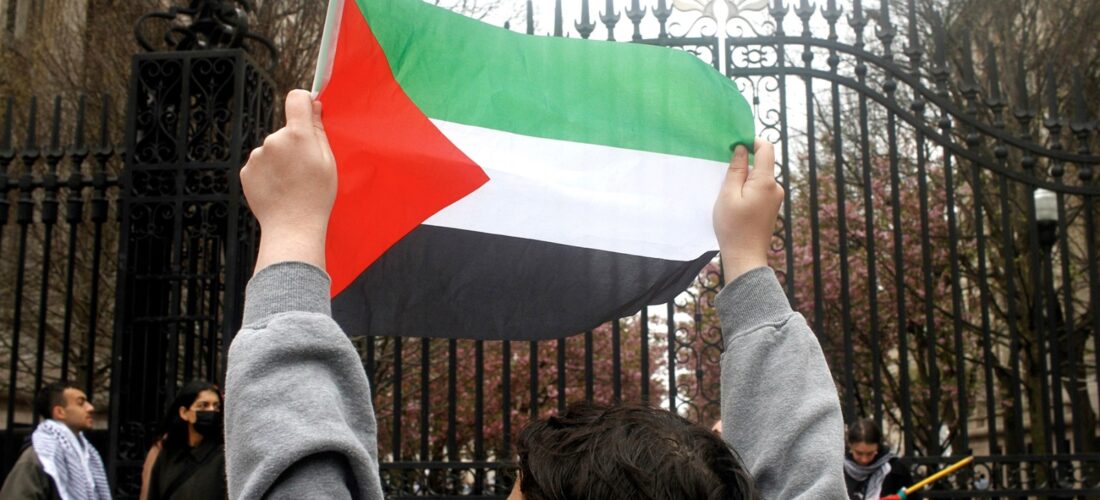Columbia Cracks Down on Pro-Palestine Protest After Congressional Hearing
New York police arrested dozens of protesters and students at Columbia University, as campus administration cracks down on pro-Palestinian protests in the aftermath of testimony by university officials before Congress.
Police cleared an encampment of demonstrators on Columbia’s Morningside campus on Thursday, after University President Nemat Shafik sicced law enforcement on the protest. After the demonstrators were forcefully removed from the area, university staff were seen dismantling tents and throwing away food and other provisions brought into the encampment.
“Out of an abundance of concern for the safety of Columbia’s campus, I authorized the New York Police Department to begin clearing the encampment from the South Lawn of Morningside campus that had been set up by students in the early hours of Wednesday morning,” Shafik wrote in a statement on Thursday. “The current encampment violates all of the new policies [on campus protests], severely disrupts campus life, and creates a harassing and intimidating environment for many of our students,” she added.
On Wednesday, Shafik testified for nearly four hours before the House Committee on Education and the Workforce. In the aftermath of Hamas’ Oct. 7 attack on Israel — and throughout the subsequent war — Congress has leveled intense scrutiny on university administrators’ handling of pro-Palestinan protest movement, and often conflated solidarity with Palestinians as support for Hamas.
During her testimony, Shafik promised lawmakers that her administration was cracking down on unauthorized protests, and disciplining instances of antisemitism on campus. That promise has seemingly escalated to criminalizing the presence of peaceful protesters in order to appease lawmakers in Washington D.C.
At least three students participating in the encampment were suspended Wednesday at Shafik’s direction, more suspensions are expected following Thursday’s arrests. Among those disciplined was Isra Hirsi, daughter of Rep. Ilhan Omar (D-Minn.) and a student at Columbia’s Barnard College.
Rep. Omar expressed her support for the protesters in a post on X, formerly Twitter. “Columbia has always had an incredible history of students fighting for a more just world and it’s good to see that tradition continue. As NYPD surrounds young activists, I hope their concerns are heard by school administrators and they not be criminalized,” the congresswoman wrote.
More than 34,000 Palestinians have been killed in the ongoing conflict in Gaza, with the vast majority of deaths believed to be civilian, non-combatant casualties. The death toll, which is likely an undercount given the scale of the devastation, is expected to increase as the region teeters on the brink of widespread famine amid heavy restrictions on the entry of humanitarian aid. Protests calling for more forceful action by the U.S. government to curb Israeli military action have erupted throughout the country, including on college campuses. In January, multiple individuals were accused of perpetrating a chemical attack at a Columbia University using “skunk spray” against pro-Palestinian protesters.
After being forcefully evicted or arrested by police on Thursday, protesters continued to demonstrate around Columbia’s campus, and while Shafik’s decision to call in law enforcement may help appease lawmakers on Capitol Hill, it may have irrevocably harmed her relationship with large swaths of Columbia’s students and faculty.
“Columbia can either be a world-class place of research and learning, or we can be an institution that resorts to law-and-order responses to protest even when there’s no threat to safety or operations, but we can’t be both,” Joseph Howley, a classics professor, told the Columbia Spectator. “I wish the last few months had left me with greater confidence that the University’s response today was about how the students were protesting rather than what they were protesting.”
